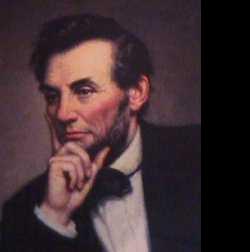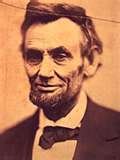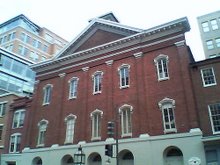
State of the art technology during the Civil War was the steel point pen and the magnetic telegraph. Every day Lincoln could be seen crossing the White House lawn to the telegraph office to check on messages from his generals. He often spent hours there and actually composed the Emancipation Proclamation in that office.
But unless a telegraph wagon was available in the field, some dispatches could take days to reach the White House, often after battle situations had changed drastically.
Wait now, suppose cell phones had existed during the Civil War? It’s not such a far-fetched idea. Bell was working on the photophone, a form of fiber optics, 15 short years after the surrender at Appomattox.
Would cell phones have made a difference? Instead of crossing the White House lawn, Lincoln might have been standing out in front of it, trying to get a signal, or worse yet, leaning out a window to better hear his generals. Even then, you know how those signals can get garbled. The drama of Sherman’s ultimate message may have played out something like this – Sherman: "I beg to give you as a Christmas gift, the city of Savannah." Lincoln: "What? You broke your leg on a skiff and you’re sitting in Louisiana?" Sherman: "No, no. I give you Savannah as a Christmas present." Lincoln: "You sang Oh Susannah at a Christmas pageant?" So much for progress.
Plus, you know that if Lincoln had carried a pocket phone, it would have gone off right in the middle of the Gettysburg Address, probably blaring Dixie, which he said was his favorite tune. Oops.
And wouldn’t McClellan have loved a cell phone. Instead of keeping the President waiting for hours in an outer room while he chatted away with friends, George could have just stuck his head out the door and said "leave it on my cell."
And how about Jeff Davis, sitting in church, quietly informed by a messenger that Richmond was under attack? No need for that anymore. His cell phone would simply have gone off during the service, probably also blaring Dixie.
Now text messaging – I think Lincoln would have preferred that. Just think, no more scribbling speeches on the back of an envelope or blotting ink on crucial documents. He could have text messaged the entire Emancipation Proclamation, 160 words at a time, to every cell phone in the Confederacy, and for less cost than the average teenage conversation.
The only trouble with text messaging is, you can be erased. That’s right. Lincoln’s most important human rights document might have disappeared forever into microspace. Oh well. Maybe there’s something to be said for pen and ink after all.
If you agree with me, share your thoughts on how Lincoln might have used modern technology during the Civil War. If you disagree with me, leave it on my cell.









1 comment:
To learn more about the telegraph during the Civil War, read "Mr. Lincoln's T-mails" by Tom Wheeler. To find out what happened to Bell's photophone, read "Reluctant Genius" by Charlotte Gray. This is a great biography on Bell.
Post a Comment